Bird Flu: Should You Take Down Your Feeders?
Updated: Apr. 28, 2022
Will avian influenza affect backyard birds? Find out if you need to take down feeders, plus learn bird flu symptoms you should look for.
What is the Bird Flu?
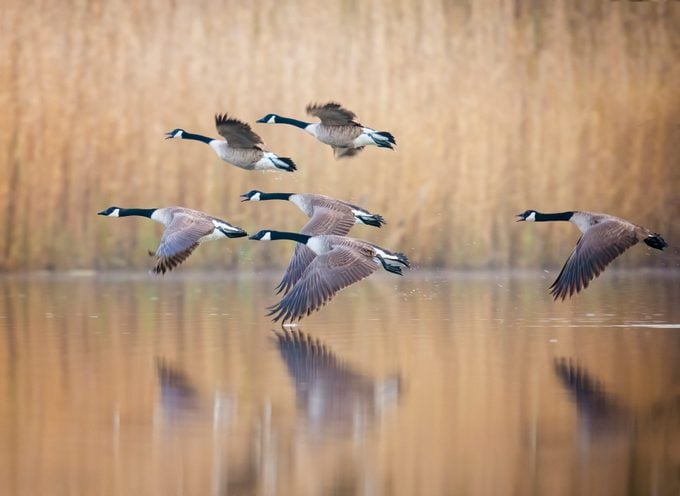
According to the University of Illinois Extension Office, avian influenza, or the bird flu, is an extremely infectious respiratory disease that affects all domestic poultry, including laying hens, broilers, and turkeys, as well as waterfowl and game birds. It can spread quickly within flocks causing severe disease and death. Currently 33 U.S. states have confirmed avian flu cases in wild birds.
In the last outbreak of bird flu, more than 200 commercial flocks and 21 backyard flocks in the U.S. were affected, leading to the deaths of more than 50 million birds between 2014 and 2015.
Ken Keffer, co-owner of the Wild Birds Unlimited Store in Bloomington, Indiana, says, “Avian flu isn’t new. Avian influenzas were first identified in Europe in the 1870s. Variants of the current highly pathogenic avian influenza strain (HPAI H5N1) first emerged in southern China in 1996. North America had outbreaks in 2014 and 2015. The recent strain was detected in North America last fall, and is different than previous H5N1 viruses according to the Centers for Disease Control.”
Learn more about other common wild bird diseases.
Which Species Are Affected by Bird Flu?
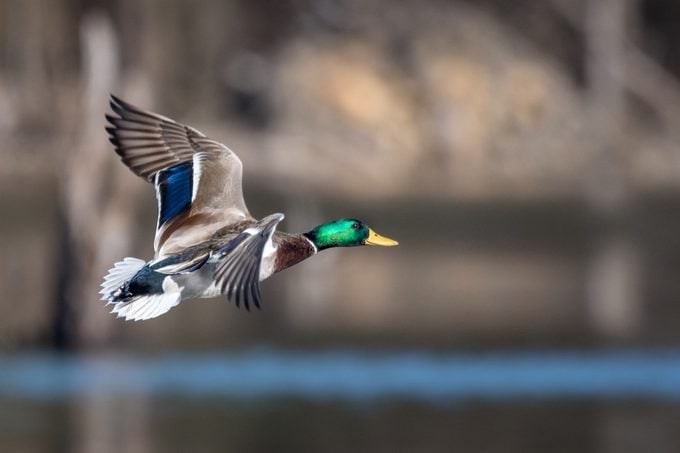
In wild birds, waterfowl including ducks, geese, and swans, are the main group impacted. It can be fatal in these species, although often they carry and transmit the virus without showing symptoms. Other birds including raptors like hawks and eagles, as well as shorebirds and gulls have also tested positive for HPAI H5N1 during this outbreak. Research has shown songbirds are less likely to contract bird flu and are less likely to shed large amounts of the virus. A small number of corvid species (crows, jays, and magpies) have tested positive.
Visible symptoms of bird flu include runny eyes, swelling, and lethargy.
Poultry operations are especially feeling the effects of bird flu. When the disease is detected in domestic poultry, flocks are depopulated to prevent the disease from spreading and removed from the food system. Other area flocks are then monitored for the disease.
Discover 8 ways to ensure a bird-safe backyard.
Is it Safe to Feed Wild Birds Right Now?
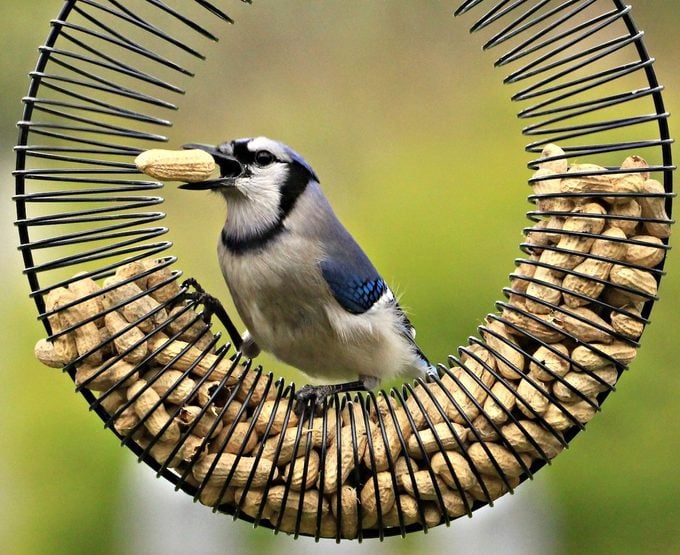
There is no official recommendation to take down feeders unless you also keep domestic poultry, according to the National Wildlife Disease Program.
Ken says, “The Cornell Lab of Ornithology and United States Department of Agriculture have both stated that bird feeding is safe. Out of an abundance of caution, some agencies initially suggested taking feeders down, but these guidelines have been scaled back. Currently, I’m not aware of any restrictions in place on bird feeders.”
He further explains if you raise poultry and live in an area where avian influenza is being reported, you could consider removing bird feeders in the short term. “Past outbreaks of avian flu have generally waned by early summer,” he says.
Joy O’Keefe, assistant professor and Illinois Extension wildlife specialist in the Department of Natural Resources & Environmental Sciences, advises homeowners to plant native shrubs and wildflowers this spring for their backyard birds. “In the absence of feeders, birds should be able to find natural sources of food from sprouting native plants and emerging insects,” she says.
The Illinois Department of Natural Resources says hummingbird feeders and oriole feeders do not need to be removed. Check with your state wildlife agency for updated guidelines in your area.
Clean Your Feeders to Reduce the Spread of Disease
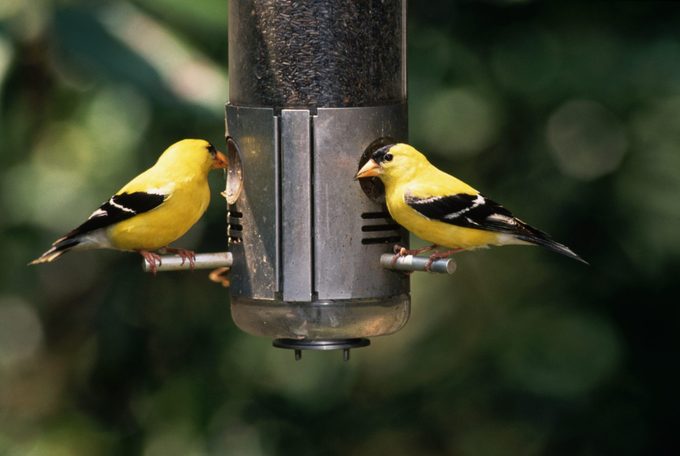
Maintaining clean feeders and bird baths is always important. Scrub your feeders clean with some soapy water and a good stiff brush. Then soak them in a 10% bleach solution (1 part bleach to 9 parts water) for a few minutes. Next, rinse them very thoroughly and let them dry completely before putting them back outside. Here’s how to clean a bird bath.
Ken points out it’s also important to maintain a clean area around your feeders. “If you aren’t feeding a no mess blend of seeds without any shells, rake up the empty hulls from under the feeders. You can also consider moving your feeding station around the yard to minimize accumulation,” he says. Try these no mess bird feeders to keep your yard clean.
The USDA has issued biosafety recommendations for backyard poultry flocks. “Poultry owners should keep things as clean as they can,” says Kenneth Koelkebeck, professor and Illinois Extension poultry specialist in the Animal Sciences department. “Remove standing water if possible because it will attract migratory waterfowl.”
Is Bird Flu Dangerous to Humans, Pets or Other Animals?
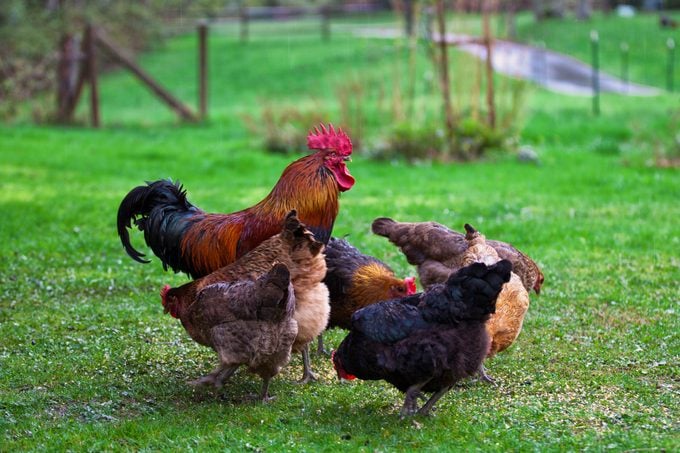
The CDC is monitoring the recent outbreak and reports it is not an immediate public health concern. In North America, no human cases have been associated with the H5N1 avian flu. The CDC considers the risk of humans catching avian influenza to be low. Similarly, dogs and cats are rarely infected.
However, pet birds and domestic poultry, including backyard chickens, can be susceptible to bird flu. Domestic flock owners should prevent contact between their backyard flocks and wild birds.
What to Do if You See Sick or Dead Birds
Report sick or dead birds to your state wildlife agency or local agricultural extension agent. You can also contact the U.S. Department of Agriculture’s Animal and Plant Health Inspection Service Veterinary Services toll-free at 1-866-536-7593.
Next, find out how to help a bird that flew into a window.




















